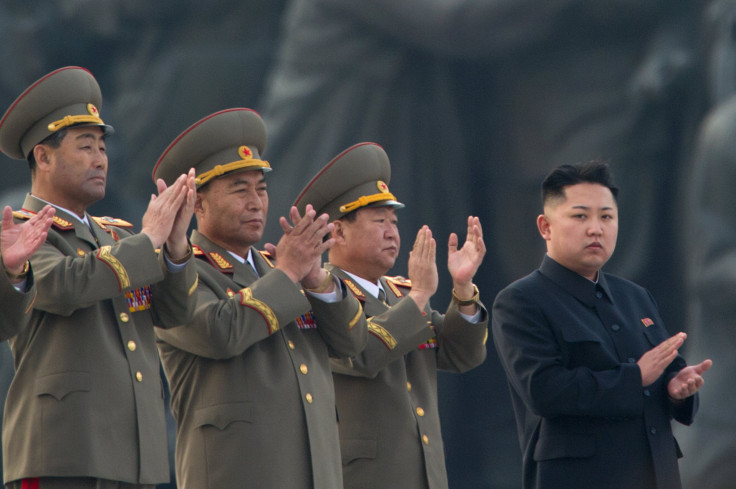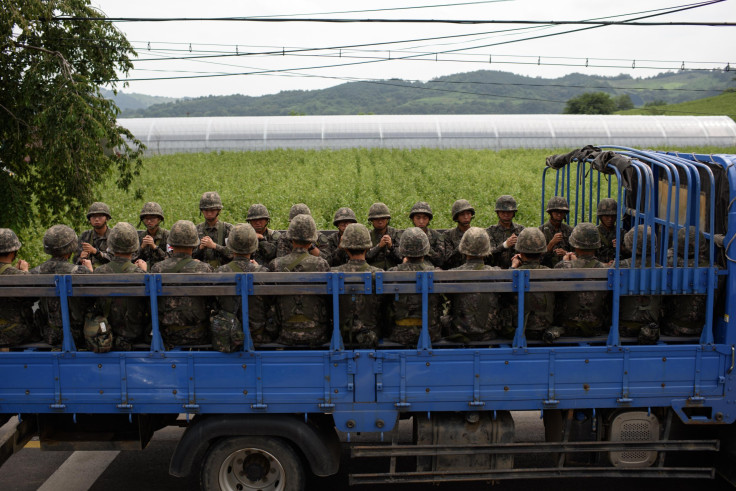North Korea China Military Parade Snub: Kim Jong Un Refuses Chinese Invitation As Border Tensions With Seoul Heighten

North Korean leader Kim Jong Un declined an invitation to attend a military parade commemorating China's victory over Japan during World War II, a diplomatic source told South Korea's Yonhap news agency Monday. The snub was announced amid escalating military tensions between North and South Korea, including artillery fire exchanges over the Demilitarized Zone.
Kim's refusal sparked speculation about the cause of the snub, given China's notable absence from its usual role as negotiator between the two countries. The parade, set to take place Sept. 3, will be shunned by most Western leaders, said the diplomatic source, who spoke to Yonhap on the condition of anonymity.
North Korea and China have continued to build close relations over the past half-century, often to the dismay of Western leaders. Relations between the two countries appeared to cool as China has not been actively involved in peace-talk efforts between North Korea and South Korea amid violent exchanges this summer, including the explosion of two land mines that maimed South Korean soldiers in early August.

Strained relations on the Korean Peninsula have been one of the factors driving a wedge between China and North Korea, analysts have said. Two South Korean soldiers were maimed Aug. 4 after stepping on land mines in the Demilitarized Zone near North Korea, causing South Korea to retaliate by reinstating loudspeakers along the border that projected anti-North Korean propaganda messages.
The two nations have traded artillery fire since Thursday.
“Beijing has been noticeably, almost painfully, absent from the escalating tension on the Korean Peninsula in the last couple weeks," John Delury, an associate professor at Yonsei University in Seoul, South Korea, told Time magazine Monday. "Other than anodyne calls for everybody to exercise self-restraint, Beijing has had nothing to say or do to improve the situation.”
© Copyright IBTimes 2025. All rights reserved.






















